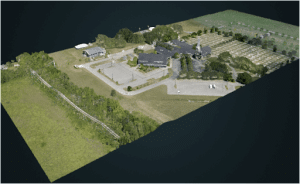In this informative presentation by Kory Kellum from Phoenix LiDAR Systems, viewers will gain a comprehensive understanding of UAS LiDAR systems. Kory delves into the essential components of a LiDAR system, such as the LiDAR sensor, GNSS antenna, IMU, data storage, CPU, and optional camera, emphasizing the need for high-quality trajectories through post-processed kinematic (PPK) methods and bore site calibration.
He outlines the critical steps in processing UAS LiDAR data, from mission planning to classification, and categorizes LiDAR systems based on precision, accuracy, point density, and maximum range. Corey also compares multi-laser and single-laser sensors, discusses the selection of GNSS antennas and IMUs, and provides an overview of current LiDAR systems like the Ranger series, and Scout series. The presentation highlights the benefits of co-acquiring imagery and features examples of data outputs to illustrate system performance.
Concluding with a Q&A session, this video is a must-watch for those interested in selecting the right LiDAR system for their specific needs and budget.



